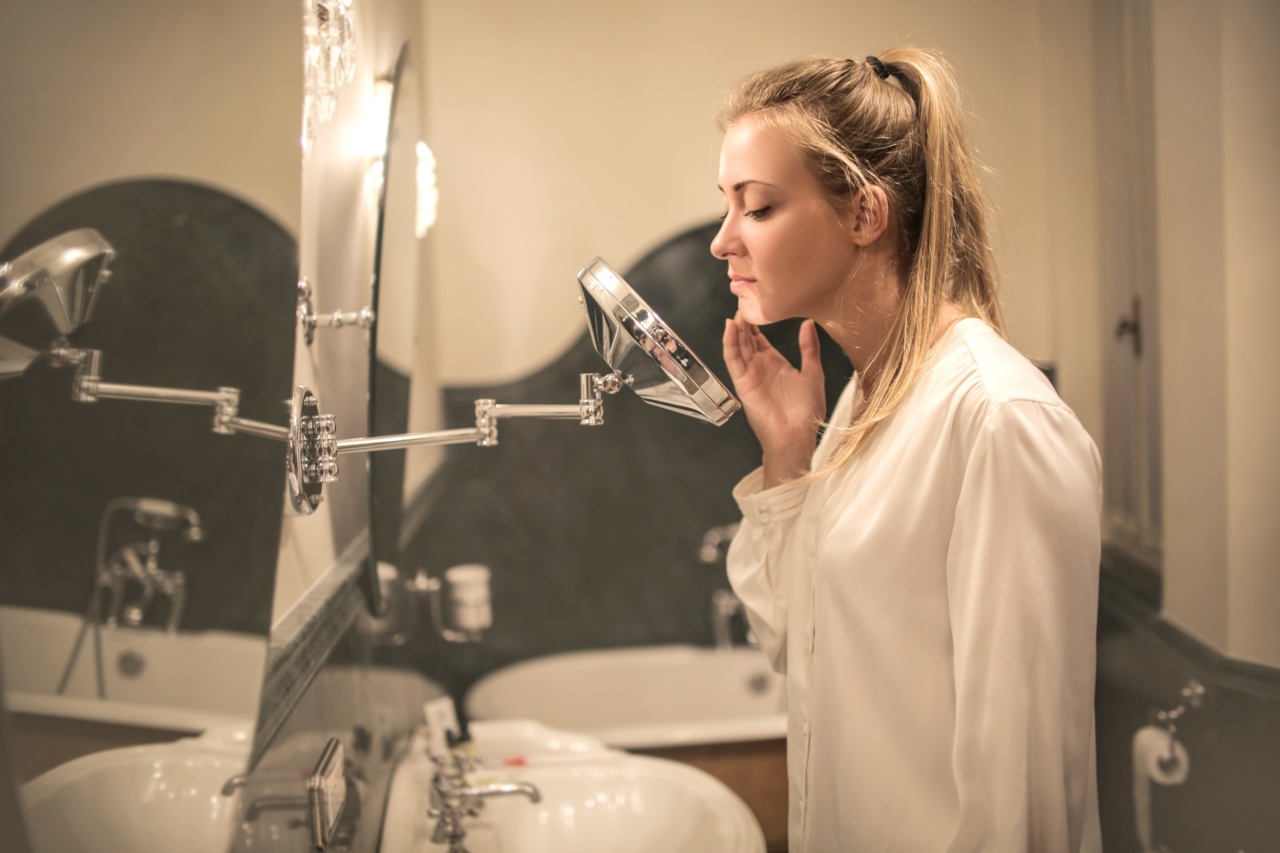Acne is a common skin condition that affects millions of people worldwide. While the exact cause of acne is not fully understood, it is believed to be a result of several factors, including hormones, bacteria, inflammation, and clogged pores.
However, did you know that your everyday habits could also be contributing to your acne breakouts? In this article, we will explore some of the common habits that can trigger or worsen acne and provide practical tips to help you achieve clearer and healthier skin.
1. Poor Diet and Acne
What you eat can have a significant impact on your skin health.
Research suggests that high-glycemic-index foods, such as processed carbs and sugary snacks, can stimulate the production of insulin and other hormones, leading to increased sebum (oil) production and inflammation – both of which can contribute to acne formation. Additionally, dairy products and foods with a high dairy content have also been linked to acne breakouts in some individuals.
To minimize the risk of acne, it is advisable to include more fruits, vegetables, lean proteins, and whole grains in your diet while reducing the consumption of sugary and processed foods.
2. Not Cleansing Your Face Properly
Adequate facial hygiene is essential for preventing acne. Failure to cleanse your face thoroughly can leave behind dirt, bacteria, and dead skin cells, which can clog pores and contribute to acne formation.
It is recommended to wash your face gently twice a day using a mild cleanser suitable for your skin type. Avoid using harsh scrubs or cleansing brushes, as they can irritate the skin and worsen acne. Additionally, remember to remove your makeup before going to bed, as leaving it on overnight can further clog pores and lead to breakouts.
3. Using the Wrong Skincare Products
Using skincare products that are not suitable for your skin type can exacerbate acne.
For example, individuals with oily skin should opt for oil-free and non-comedogenic (non-pore-clogging) products, while those with sensitive skin should avoid products containing fragrances or harsh ingredients. It is recommended to consult with a dermatologist or skincare professional to determine the most appropriate skincare routine and products for your specific skin concerns.
4. Touching Your Face Frequently
Touching your face throughout the day can transfer dirt, oil, and bacteria from your hands to your skin, leading to clogged pores and breakouts. Additionally, constantly resting your chin or cheeks on your hands can also contribute to acne formation.
To minimize the risk of acne, make a conscious effort to avoid touching your face and regularly wash your hands with soap and water, especially before applying any skincare products.
5. Not Changing Pillowcases Regularly
Did you know that your pillowcase can harbor dirt, oil, and bacteria, which can transfer to your skin while you sleep? Not changing your pillowcase regularly can contribute to acne breakouts, especially if you have oily or acne-prone skin.
It is advisable to change your pillowcase at least once or twice a week and opt for pillowcases made from natural fibers like cotton, which are more breathable and less likely to trap oil and bacteria.
6. Exposure to Excessive Heat and Humidity
Extreme heat and humidity can increase sweat production, leading to clogged pores and acne formation. When sweat mixes with oils, dead skin cells, and bacteria on the skin’s surface, it can trigger breakouts.
To prevent acne, it is crucial to maintain a comfortable room temperature and avoid spending long periods in hot and humid environments. Additionally, after sweating, it is important to cleanse your skin gently to remove any impurities.
7. Stress and Acne
Stress can wreak havoc on your overall health, including your skin. When you’re stressed, your body produces more cortisol, a hormone that can stimulate oil production and lead to breakouts.
Additionally, stress can weaken the immune system, making it harder for your body to fight off acne-causing bacteria. To manage your stress levels and potentially improve your acne, consider incorporating relaxation techniques such as meditation, deep breathing exercises, or yoga into your daily routine.
8. Overwashing and Excessive Scrubbing
While cleansing your face is essential, overwashing and excessive scrubbing can strip away your skin’s natural oils and disrupt its balance.
This may cause your skin to produce even more oil to compensate for the dryness, leading to clogged pores and acne breakouts. It is recommended to wash your face twice a day in a gentle, circular motion using lukewarm water and a mild cleanser. Avoid using hot water, harsh soaps, or scrubbing vigorously, as these can irritate your skin and worsen acne.
9. Using Dirty Makeup Brushes
If you use makeup brushes regularly without cleaning them, they can accumulate oil, bacteria, and dead skin cells, which can then transfer back onto your skin, leading to breakouts.
It is crucial to clean your makeup brushes at least once a week using mild soap or a brush cleanser. Additionally, consider replacing your brushes regularly, as old and worn-out brushes may not apply makeup evenly, increasing the chances of clogged pores and acne formation.
10. Lack of Sleep and Acne
Sleep deprivation can disrupt your body’s hormonal balance, leading to increased inflammation and sebum production – both of which can contribute to acne.
Lack of sleep can also weaken your immune system, making it harder for your body to fight off acne-causing bacteria. Aim for 7-9 hours of quality sleep each night to help promote healthy skin and overall well-being.
Conclusion
While there are various factors that contribute to acne breakouts, your everyday habits can play a significant role in the development and worsening of acne.
By making simple changes to your diet, skincare routine, hygiene practices, and lifestyle, you can minimize the risk of acne and improve the overall health and appearance of your skin. Remember, consistency is key, and it may take time to see noticeable improvements. If acne persists despite implementing these changes, it is advisable to consult with a dermatologist for personalized guidance and treatment options.































